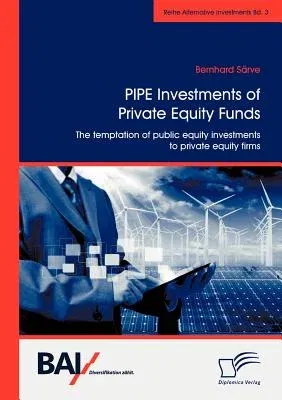Bernhard Särve
(Author)PIPE Investments of Private Equity Funds: The temptation of public equity investments to private equity firmsPaperback, 9 January 2013

Qty
1
Turbo
Ships in 2 - 3 days
In Stock
Free Delivery
Cash on Delivery
15 Days
Free Returns
Secure Checkout
Print Length
82 pages
Language
English
Publisher
Diplomica Verlag
Date Published
9 Jan 2013
ISBN-10
3842889119
ISBN-13
9783842889118
Description
Product Details
Author:
Book Format:
Paperback
Country of Origin:
US
Date Published:
9 January 2013
Dimensions:
21.01 x
14.81 x
0.43 cm
ISBN-10:
3842889119
ISBN-13:
9783842889118
Language:
English
Location:
Hamburg
Pages:
82
Publisher:
Weight:
108.86 gm

